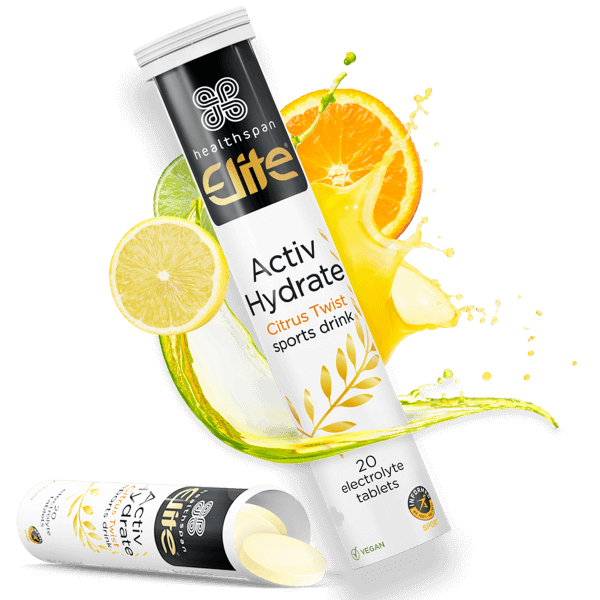We all know that when it's hot we need to drink more, but as we head further into summer and the mercury creeps up, athletes in particular need to be aware of the dangers that come with not taking in enough fluid. Here you can find out everything you need to know about dehydration and how to prevent it.
What is dehydration?
Put simply, dehydration is when you are losing more fluid than you are taking in. Although changes in fluid balance are normal – you can lose a litre of fluid while you sleep, but compensate for this when you wake – dehydration is when your fluid loss is to such an extent that it impacts your physiological function.
What happens when you become dehydrated?
First, you need to understand the basic principles of physiology and the body's fluid dynamics. The body is a multi-cell organism, but its individual cells follow some of the basic principles of simple, single-cell creatures such as amoeba. A cell is dependent on fluid to maintain its structure and function, and there is a constant flow of fluid and metabolites (waste) between the inside and the outside of the cell.
If the fluid outside the cell becomes more concentrated than the fluid inside (due to dehydration), water will move through the cell membrane to the outside of the cell to maintain balance – a process known as osmosis. If too much fluid moves out of the cell, it will affect its performance.
How do we become dehydrated?
There are three main ways that you lose fluids
- Excretion: urine, which is mainly controlled by an anti-diuretic hormone called vasopressin and faeces, where, if we have diarrhoea, we can lose a lot of fluid through the bowels.
- Sweat: this is one of the body's prime cooling strategies. When we sweat, the latent heat of evaporation cools us down.
- Ventilation: every time we breathe, we lose some fluid in our breath. This is one of the main contributors to dehydration at altitude, as we have an increased ventilation rate.
Athletes should also consider the body's fluid compartments and how dehydration may impact these different compartments. The most relevant fluid compartments to athletes are:
- Muscle cell fluid: if this is reduced, it can affect the function of the cell, particularly in endurance exercise. Other effects can include increased oxidative damage and reduced protein synthesis.
- Cerebral spinal fluid: this is the fluid that bathes the brain. While research in this area is limited, there is evidence to suggest that dehydration affects the ventricular spaces in the brain. Research has shown that dehydration can reduce cognitive function and cause headaches; the headache after a night of drinking is believed to be related to the dehydration effects of alcohol.
- Plasma volume: this is our blood volume. As we dehydrate, this volume decreases, making the blood thicker. The heart then has to work harder to pump the blood around the body.

Elite Activ Hydrate
Delicious fruit-flavoured electrolyte drink to replenish minerals lost during exercise
- Replenishes the essential electrolytes sodium, calcium, magnesium and potassium
- Contains 300mg sodium
- Informed Sport-accredited
Spotting dehydration
Dehydration can creep up on you, even in the winter. Signs include increased thirst, increased exertion/having to work harder than normal, an increased heart rate and dark, concentrated urine.
What can you do?
When it comes to preventing dehydration, there are different schools of thought. Some people judge by the level of thirst, while others prescribe a strict drinking protocol. I have a more pragmatic approach and consider the goals that we are trying to achieve from a performance point of view. At a race such as the Tour de France, my main priorities when it comes to hydration are rider health and wellbeing, followed by performance.
When the temperature is above 25°C, I recommend that the riders aim for one litre of water per hour. We work on a positive hydration strategy, which aims to maximise the drinking opportunities for the riders. We also monitor urine daily, and the fact that we look at this really pushes hydration up the riders' list of priorities.
Treating and preventing dehydration
Although water by itself is useful, including electrolytes (such as sodium, potassium and magnesium) in drinks helps to push the fluid into the blood and muscle cells. Electrolyte tablets have revolutionised hydration drinks, especially for people who are exercising but who do not necessarily want the calories in a sports drink.
They are particularly useful for the non-elite exerciser who may go to the gym in the morning before work and get a good sweat up, then go to an air-conditioned office, which can exacerbate dehydration. In addition to working with professional cyclists, I work with the British Sailing Team, and the use of Healthspan Elite's Activ Hydrate is a key part of the sailors' hydration strategy.







